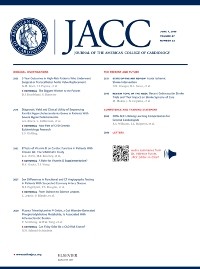
More than four and a half years after questions were first raised about work in a cardiac stem cell lab at Harvard and the Brigham and Women’s Hospital, a year and a half after the Brigham and Partners Healthcare paid $10 million to settle allegations of fraud in the lab’s data, a month after Harvard the Brigham disclosed that they were calling for the retractions of more than 30 papers from the lab, and three weeks after the NIH paused a clinical trial based on the work, two leading journals have issued an expression of concern about 15 papers from the lab.
But expressions of concern are not retractions, of course. From the notice, in Circulation and Circulation Research, both of which are published by the American Heart Association: Continue reading Journals stamp expressions of concern on 15 papers from Anversa’s cardiac stem cell lab





 A cardiology journal has retracted a 2016 meta-analysis after the editors had an, ahem, change of heart about the rigor of the study.
A cardiology journal has retracted a 2016 meta-analysis after the editors had an, ahem, change of heart about the rigor of the study.
 In June,
In June,